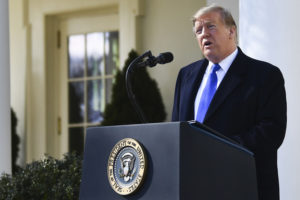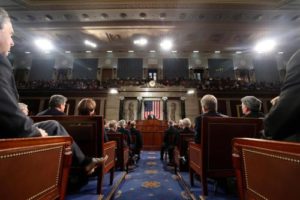So, the president of the United States has done it.
Donald Trump declared a national emergency where none actually exists. He wants to build The Wall. He is intent on erecting that structure along our southern border to, as he said, stem the flow of human traffickers, drug dealers, murderers, terrorists and assorted riff raff he insists are “pouring” across the border.
That isn’t happening, no matter what the says.
There’s more, though. He wants to pilfer money already appropriated for defense projects to pay for construction of The Wall. That move has produced criticism from unlikely sources, such as from Republican U.S. Rep. Mac Thornberry, the Texas Panhandle congressman who once chaired the House Armed Services Committee. Thornberry, now the ranking member of Armed Services, says wall construction is not part of the military mission. Thornberry, who isn’t prone to criticize the president, opposes this initiative.
Congressional Democrats are going to contest the emergency declaration. Of course they oppose Trump’s decision.
The president, though, appears to be miffed that members of Congress who should have stepped up didn’t do as he wished. So he’s conducted this end-around.
The current chairman of the House Armed Services panel, Rep. Adam Smith, D-Wash., said this: “It is utterly disrespectful of U.S. national security and the needs of our men and women in uniform, and it further undermines his credibility in requesting the upcoming defense budget.”
That’s the president’s modus operandi. He says he “loves” the military and the men and women who defend the country. However, he is quite willing to undercut their work so he can build The Wall.


